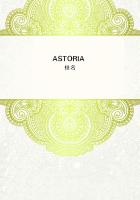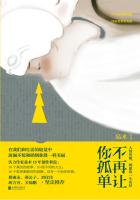In favour of the reliability of these reports the fact is urged that they were placed before Parliament, and that the members of both Houses were so impressed by the tale of corruption and wickedness which they disclosed that they decided on the immediate suppression of the monasteries. If this were true and if Parliament in the days of Henry VIII. enjoyed the same rights and privileges as it enjoys to-day such action would be in itself a strong corroboration of the veracity of the commissioners. But there is no sufficient evidence to prove that the reports or compilations made from them were ever submitted to Parliament. The king and Cromwell informed the Houses of the charges made by the commissioners, and demanded their consent to the bill of suppression. The whole measure was passed in a few days (11th to 18th March, 1536) and there is no proof that the /Comperta/ or a "Black Book" were presented to the members. On the contrary, it is clear from the preamble to the Act that in the larger monasteries "religion was right well kept and observed," and that it was only in the smaller houses with less than twelve members that disorder and corruption existed, whereas in the reports of the commissioners no such distinction is observed, the charges being levelled just as strongly against the larger as against the smaller communities. Had Parliament been in possession of the reports or had there been any adequate discussion, it is difficult to see how such an arbitrary distinction, founded neither on the nature of things, nor on the findings of the commissioners, could have been allowed to pass. It is noteworthy too that many of the individuals, whose names were associated in the /Comperta/ with very serious crimes, were placed in the possession of pensions on the dissolution of the monasteries, and some of them were promoted to the highest ecclesiastical offices in the gift of the crown.
Besides, if the reports of Leigh and Leyton be compared with the episcopal visitations of the same houses or with those of the royal visitors appointed in 1536 to carry out the suppression of the smaller monasteries, it will be found that in regard to the very same houses there exists a very open contradiction between their findings.
Unfortunately the accounts of the visitations have disappeared to a great extent except in case of the diocese of Norwich. In this diocese the visitations were carried out very strictly and very minutely, and although some abuses were detected the bishop could find nothing of the wholesale corruption and immorality discovered a few years later by the minions of Cromwell. Similarly the commission appointed in 1536to superintend the suppression decreed in that year, the members of which were drawn from the leading men in each county, report in the highest terms of houses which were spoken of as hot-beds of iniquity only a few months before. Finally, if the monasteries and convents were really so bad as they are painted, it is a curious fact that although Leigh and Leyton were empowered by Cromwell to open the doors to many of the monks and nuns they could find in the thirteen counties which they visited only two nuns and fifty-three monks willing to avail themselves of the liberty which they offered.[9]
As a general rule the monasteries were regarded with kindly feelings by the great body of the people on account of their charity and hospitality towards the poor and the wayfarer, their leniency and generosity as compared with other employers and landlords, their schools which did so much for the education of the district, and their orphanages and hospitals. Many of them were exceedingly wealthy, while some of them found it difficult to procure the means of existence, and all of them suffered greatly from the financial burdens imposed upon them in the shape of pensions, etc., by the king or by the family by whom their endowments were provided originally. For this reason some of the religious houses, imitating the example of the landowners generally, began to form grazing enclosures[10] out of their estates which had been hitherto under cultivation, a step that led in some cases to eviction and in all cases to a great reduction in the number of labourers employed. Others of them set up tanneries and such like industries that had been best left to the laymen. These measures led to ill-feeling and to a certain amount of hostility, but that the religious houses were not hated by the people is proved to demonstration by the rebellions which their suppression evoked in so many different parts of the country.
It may be said in a general way that the relations between priests and people were neither particularly close nor particularly strained. The rights and privileges claimed by the clergy did indeed give rise to murmurings and complaints in certain quarters, but these were neither so serious nor so general as to indicate anything like a deep-rooted and sharp division between priests and people. The question of the rights of sanctuary, according to which criminals who escaped into the enclosures of monasteries and churches were guaranteed protection from arrest, led to a sharp conflict between the ecclesiastical and secular jurisdictions, but with a little moderation on both sides it was not a matter that could have excited permanent ill-feeling. In the days when might was right the privileges of sanctuary served a useful purpose.















